 68 citations,
February 1990 in “Journal of Applied Social Psychology”
68 citations,
February 1990 in “Journal of Applied Social Psychology” Bald men are often viewed more negatively and as older than they really are.
 56 citations,
March 2016 in “International Wound Journal”
56 citations,
March 2016 in “International Wound Journal” Skin grafts are effective for chronic leg ulcers, especially autologous split-thickness grafts for venous ulcers, but more data is needed for diabetic ulcers.
 53 citations,
September 2017 in “BMJ Open”
53 citations,
September 2017 in “BMJ Open” Nearly all elderly nursing home residents had a skin disease, with dry skin being the most common.
 39 citations,
March 2018 in “Archives of Dermatological Research”
39 citations,
March 2018 in “Archives of Dermatological Research” Androgens may block hair growth signals, targeting this could treat hair loss.
 32 citations,
March 2019 in “Climacteric”
32 citations,
March 2019 in “Climacteric” Premature ovarian insufficiency (POI) can harm women's sexual health, and they may benefit from hormone therapy and counseling.
 24 citations,
January 2021 in “Dermatologic Therapy”
24 citations,
January 2021 in “Dermatologic Therapy” Platelet-rich plasma (PRP) is a safe and potentially effective way to treat hair loss, especially when combined with minoxidil.
 12 citations,
September 2020 in “Journal of cosmetic dermatology”
12 citations,
September 2020 in “Journal of cosmetic dermatology” Trichoscopy is useful for diagnosing and monitoring alopecia areata treatment.
 10 citations,
June 2019 in “Journal of Tissue Engineering and Regenerative Medicine”
10 citations,
June 2019 in “Journal of Tissue Engineering and Regenerative Medicine” Scientists successfully grew new hair follicles in regenerated mouse skin using mouse and human cells.
 6 citations,
September 2005 in “Expert Opinion on Pharmacotherapy”
6 citations,
September 2005 in “Expert Opinion on Pharmacotherapy” Androgen therapy can help with symptoms like low libido in women, but more research is needed to understand its long-term safety and effects on health.
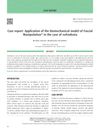 August 2021 in “Pelviperineology”
August 2021 in “Pelviperineology” Fascial Manipulation treatment helped a woman with vulvodynia and other health issues.
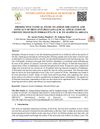 July 2018 in “International journal of research - granthaalayah”
July 2018 in “International journal of research - granthaalayah” Croton tiglium application significantly improved hair regrowth in alopecia areata patients.
 85 citations,
March 2002 in “Body & Society”
85 citations,
March 2002 in “Body & Society” The document concludes that cosmetic surgery is still mainly a practice for women and the gender gap in this field is expected to continue.
 48 citations,
April 2013 in “Expert Opinion on Investigational Drugs”
48 citations,
April 2013 in “Expert Opinion on Investigational Drugs” Possible new treatments for common hair loss include drugs, stem cells, and improved transplants.
 29 citations,
September 2017 in “Oncology and therapy”
29 citations,
September 2017 in “Oncology and therapy” The document provides advice on how to recognize and treat skin-related side effects of cancer drugs known as EGFR inhibitors.
 23 citations,
September 2015 in “PLOS ONE”
23 citations,
September 2015 in “PLOS ONE” Mesenchymal stem cells, especially injected into the skin, heal wounds faster and better than chitosan gel or other treatments.
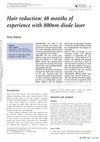 20 citations,
December 2003 in “Journal of Cosmetic and Laser Therapy”
20 citations,
December 2003 in “Journal of Cosmetic and Laser Therapy” An 800nm diode laser safely and effectively reduces hair for about 8 months, with most patients satisfied and few side effects.
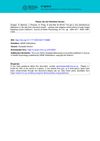 6 citations,
September 2017 in “Journal of health psychology”
6 citations,
September 2017 in “Journal of health psychology” Women who had cancer treatment feel both positive and negative about their bodies.
 4 citations,
September 2011 in “Expert Review of Dermatology”
4 citations,
September 2011 in “Expert Review of Dermatology” Various treatments exist for alopecia areata, but none are completely satisfactory; choice depends on age, disease extent, and preference.
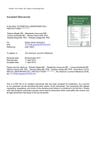 3 citations,
May 2018 in “The American Journal of Medicine”
3 citations,
May 2018 in “The American Journal of Medicine” A woman's long-term scalp issues were diagnosed as a rare skin disorder called cutaneous Langerhans cell histiocytosis.
 November 2024 in “Journal of Translational Internal Medicine”
November 2024 in “Journal of Translational Internal Medicine” Exosomes from stem cells help hair regrowth by activating a specific signaling pathway.

Dermal stem cells help regenerate hair follicles and heal skin wounds.
 November 2023 in “Journal of Cosmetic Dermatology”
November 2023 in “Journal of Cosmetic Dermatology” Injecting a person's own fat into their scalp may help regrow hair and improve hair thickness in different types of hair loss.
 November 2024 in “Journal of Cosmetic Dermatology”
November 2024 in “Journal of Cosmetic Dermatology” The plant extracts may help treat hair loss by promoting hair growth and reducing DHT levels.
 7 citations,
January 2022 in “Scientific Reports”
7 citations,
January 2022 in “Scientific Reports” Acanthus ebracteatus Vahl. extract and verbascoside may help prevent hair loss and promote hair growth due to their anti-inflammatory properties and ability to protect against cell death.
November 2022 in “Regenerative Therapy” Advancements in tissue engineering show promise for hair follicle regeneration to treat hair loss.
 October 2024 in “Cochrane library”
October 2024 in “Cochrane library” No high-certainty evidence supports any specific acne treatment.
 November 2023 in “Journal of Cosmetic Dermatology”
November 2023 in “Journal of Cosmetic Dermatology” Oral minoxidil is more convenient but topical minoxidil improves hair density better.
 September 2023 in “Medicine”
September 2023 in “Medicine” Herbal extract spray improved hair growth in a man with hair loss.
 September 2023 in “International Journal of Trichology”
September 2023 in “International Journal of Trichology” Adipose-derived stem cells may help with hair loss, but more research is needed.
 August 2023 in “Journal of Cosmetic Dermatology”
August 2023 in “Journal of Cosmetic Dermatology” Higher concentration of botulinum toxin A is safe and effective for treating hair loss in men and women.





























